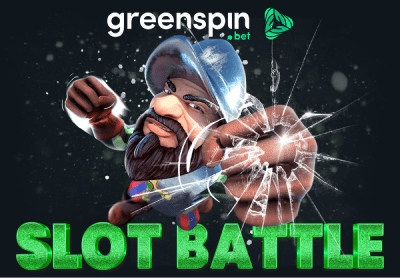Ever since Penn Entertainment CEO Jay Snowden in late February addressed the idea that his company or ESPN could exit their 10-year deal for ESPN Bet in 2026, the wagering world has been raining negatives. Some analysts have downgraded Penn stock and, on 18 March, the founder of theScore and theScoreBet had his say.
Prior to that, two investors had accused Penn of mismanaging its interactive strategy. In May 2024, the Donerail Group said “guidance misses” by Penn executives had “damaged the credibility of the management team and board of directors”. And in January, HG Vora accused the company of “reckless spending” on digital projects.
John Levy was the founder of theScore and theScoreBet, which Snowden called a “very good story for us in Canada” as a result of Penn acquiring them in 2021. Levy, however, this month shared his not-so-warm-and-fuzzy thoughts about his company’s transition to Penn.
“I just think you had to give more trust to the people who brought you to the party, which was us,” Levy said at the NEXT Summit gaming conference. “There was a bit of – we bought it and we’ll take it from here, thank you very much. When you’re as involved in the business as we always were and you can see where it was going and when things you might have been doing were happening differently – it was very hard, very frustrating.”
Levy had a front-row seat to both of Penn’s US digital wagering forays. He and other family members left their positions at Penn between February and April 2024. By then, the Levys had witnessed Penn’s ill-fated partnership with Barstool Sports, which married a cutting edge but somewhat raunchy brand with a far more staid and conservative land-based casino company.
Penn-Barstool sportsbook was a tough sell
The $2 billion (£1.54 billion/€1.83 billion) Score Media and Gaming Inc acquisition included theScoreBet’s tech stack. That means Penn has its technology in-house, a key goal for many online gaming companies so they can correct problems or make alterations more seamlessly and quickly.
Penn’s partnership with Barstool Sports, in order to use the brand for its sportsbook, lasted just over three years. In February 2020, Penn bought a 36% stake, and it completed the $551 million acquisition in February 2023. Penn then sold Barstool Sports back to founder Dave Portnoy for $1 in August 2023. That was the same month Penn announced a $2 billion deal with ESPN to create ESPN Bet as its new online sportsbook.
The relationship with Barstool had been fraught, at least from a regulatory perspective. In particular, Penn struggled to sell the partnership to the Massachusetts Gaming Commission (MGC). Commissioners questioned how much control Penn would have over Barstool advertising and marketing. The commission’s concerns about the Barstool Sportsbook persona and how that fit with responsible gambling and consumer protections made it delay issuing a wagering licence.
“So now we have an obligation to reconcile what is very available publicly as to Barstool and really the significant personality attached to Barstool and what we’re gonna do about it as we think about this application,” then commission chair Cathy Judd-Stein said in July 2023.
The MGC eventually issued the licence. But in 2023, Barstool Sportsbook was fined $250,000 in Ohio for marketing to underage students on college campuses and it had to pay $25,000 in Massachusetts for noncompliance in its advertising of a parlay product.
Levy: Bad management the issue?
All the while, Levy’s theScoreBet continued thriving under Penn’s ownership in Ontario, where digital betting went live in April 2022.
“Ontario is our number one market in North America in terms of revenues, gross profit and contribution margin today and we delivered another strong year of performance in 2024,” Snowden said during a recent earnings call. “We believe the strength in Canada will only grow once we launch in Alberta, pending all requisite approvals, given the affinity for and loyalty to theScore brand across the country.”
But Penn has struggled first with the Barstool Sports partnership and now with ESPN Bet to replicate that success.
“They had to settle this whole Barstool relationship, which was a fiasco right from the get-go,” Levy said. “Dave Portnoy’s not a stupid guy. He’s very smart. But it’s all about Dave and, unless you manage him properly, unless you control that properly, you’re not going to get the synergies you need. He’d go to a university, have his pregame parties, get a shitload of signups and then there’d be no follow-up.”
That same lack of “execution”, Levy says, is plaguing ESPN Bet.
“You just have to look at what’s happening,” Levy said. “It’s kind of like Barstool – Barstool in conception was right, but then in execution fell off. There wasn’t a unified approach and they weren’t managed properly, in my view.”
Downsizing could be coming
On 27 February, during Penn’s fourth-quarter earnings call, Snowden addressed the ESPN Bet partnership. The goal is to reach 20% market share nationwide. But 16 months in, most analysts say ESPN Bet has less than 4% market share. Competitors DraftKings and FanDuel combined have up to three-fourths of the market. BetMGM, their next closest competitor, had about 12% as of last fall. No other operator has cracked double digits.
Ohio sports betting revenue market share for June in %:
FanDuel – 44.9%
DraftKings – 30.3%
bet365 – 9.1%
BetMGM – 4.9%
ESPN BET – 3.5%
Fanatics – 2.7%
Caesars – 1.4%
Hard Rock – 1.3%
Remaining 11 sportsbooks combined for 2% market share pic.twitter.com/EcpQWnV2qL
— Waterhouse VC (@WaterhouseVC) August 8, 2024
During the earnings call, Snowden acknowledged that Penn or ESPN could exit the partnership after three years, which would be about August 2026. He also said Penn has been operating ESPN Bet as if it were a major player, even though it’s not.
“We’ve got a cost structure that right now is built for us to be a scale player because that’s where we expect to be,” he said at the time. “That’s where ESPN expects us to be. But if you’re not trending that direction, then obviously you’re not going to be operating a business from a cost structure standpoint at a scaled level.”
Might be time to narrow focus
Wall Street downgraded price targets for Penn last fall. In a 17 March note, Stifel analyst Steven Wieczynski dropped his rating to a hold and his price target to $19 from $22. A survey of seven analysts showed mixed projections, with two lowering price targets, four raising targets and one sitting even.
From 12 March 2021 to Wednesday (19 March), the stock has dropped from a five-year high of $130.47 to $17.40.
Stifel analysts recommend shifting focus to online casino and exiting the ESPN Bet deal. Other scenarios include growing market share for ESPN Bet, which has proved challenging thus far. A third option is to divest of either the digital or land-based assets. In that scenario, Penn would be hyper-focused on the remaining business.
Another big launch from the best team in the business!! If you’re in the great state of New Jersey, check out our new Hollywood Casino — now live! https://t.co/2zaapr3MV2
— Aaron LaBerge (@aaron) March 11, 2025
The Stifel note reinforces what it appears many in the industry think: Penn has a strong land-based casino business, but its foray into online sports betting in the US has been a fail. Since launch, Penn has invested in upgrades ranging from personalisation to improving functionality. But so far, nothing has significantly moved the needle.
On the online casino side, Penn is hoping for more success. The company has rolled out its Hollywood Casino platform in Michigan, New Jersey and Pennsylvania. Early numbers aren’t yet available, but multiple analysts point to online casino as a better bet. Traditionally, online casino is a significantly bigger revenue generator than sports betting. According to the Pennsylvania Gaming Control Board, in December 2024 igaming gross revenue was $221 million versus $47.3 million for sports betting gross gaming revenue.
Penn needs a change
The Stifel comments echo what the Donerail Group and HG Vora previously said. In its letter, the Donerail Group wrote: “While we understand that ESPN Bet appears as the company’s newest bright and shiny object that may very well have significant value under the right owners, we ask that the board take a moment to reflect objectively on the past four years of execution, assess the shareholder capital that has been destroyed and recognise that shareholders may simply be tired of continued gambling on uncertain outcomes.”
HG Vora was equally as direct: “To date, there have been no repercussions for the board’s persistent bad judgment and disappointing shareholder returns. We believe this is in part due to Penn’s weak corporate governance, which disenfranchises shareholders and entrenches board members while rewarding its CEO with excessive compensation.”










